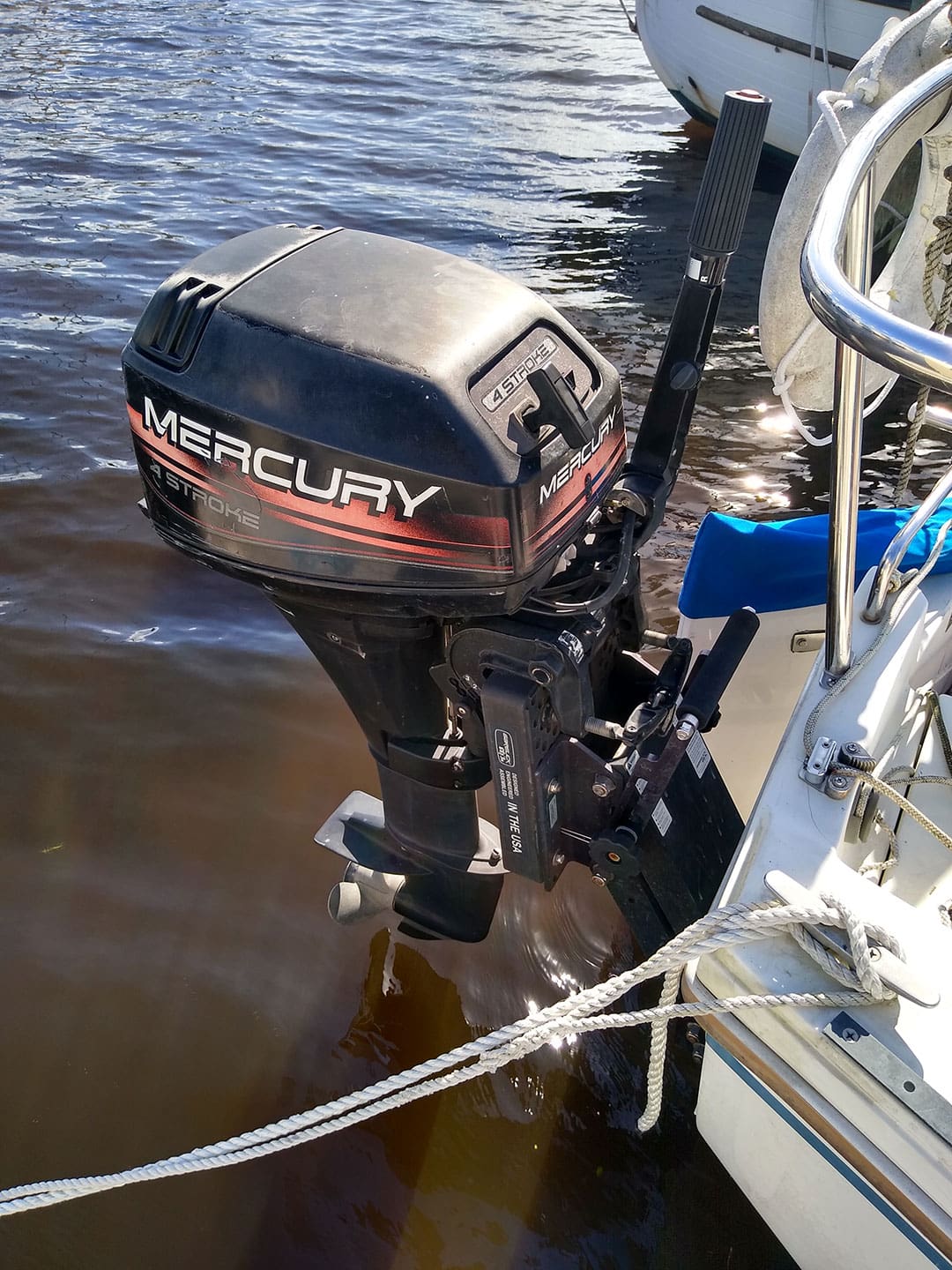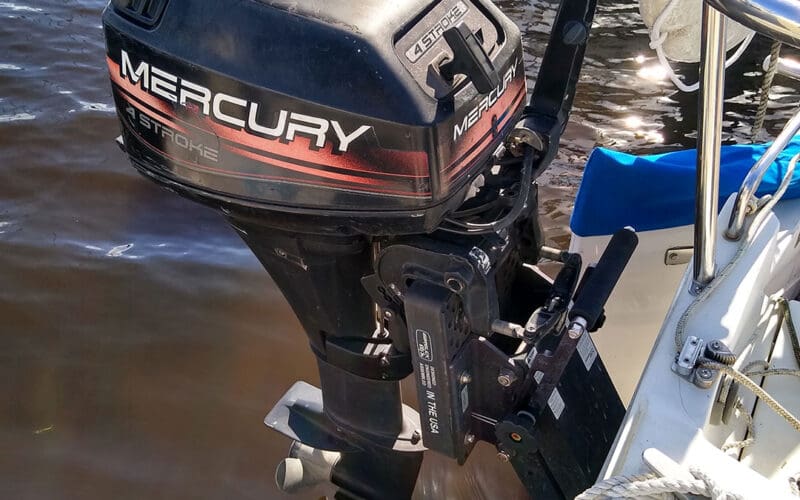Early in the morning, on a calm and beautiful Saturday I pushed off from a dock on a friend’s Catalina 25, bound for a distant race on the St. Johns River. But it was not to be: before the Ortega Bridge had even opened the 1996 four-stroke outboard engine began to shudder. It stopped, and after a check of the gas tank and several impassioned pulls the best it would do was to run at idle, wheezing and coughing — protesting that we had awakened it so early.
I looked at Richie, then pushed the tiller hard over and we crawled, ignominiously, back to the slip. No race for us.
This was not the first time old Methuselah had let us down. The outboard had been in the shop several times in the last year for expensive repairs. “That’s it!” he cried, casting a foul look in its direction. “This engine has failed me for the last time! I’m getting rid of this damn thing and buying a new outboard.”
“Good idea, mate,” I replied. But then it hit me, in the U.S. we are part of the Great Disposable Society, buying a new (or used) replacement would require only a cell phone and a credit card. But what about the old motor? “I installed some expensive parts on it,” added Richie, optimistically. “So I’m going to list it on Craigslist and Facebook marketplace.” Hmm, I thought, a 26-year-old unreliable engine, who’s gonna pay for that? But I kept silent.
In case the sale was a no-go I started an online search for a way to recycle the old engine and was dismayed at how often I saw, “Check your local landfill listing.” Surely, we could do better than that; there is a lot of good metal in an outboard, somebody could use it for scrap or parts. Our city has a bi-weekly curbside recycling program but when I asked to put the old clunker into the bin they responded that they consider outboard engines hazardous waste, making them unsuitable and unlawful to place in any kind of residential collection waste stream. They suggested taking it to the city’s hazardous waste facility — where it ultimately would go to a landfill. Back to square one.
I spoke to a local recycling company who would take almost any metal (including lead!) but they consider outboards to be low grade aluminum and were paying just nine cents a pound —far less than what you get for soda cans. They reminded me to thoroughly drain all fluids before bringing it in. Side note: if you ever need to scrap a boat, remove the metal first and bring it to a place like this.
There are charitable organizations who will take a titled boat on a working trailer, but few that will accept a clunky old gas-burner all by itself. Chesapeake Region Accessible Boating provides sailing programs for persons with disabilities and will typically resell a donated boat on their website, but when I offered the outboard I received a simple but straightforward “No, thank you,” in reply.
Running short on options I called JTech, a nonprofit trade school that specializes in marine and RV technology. “Sure, we’d love to accept your old outboard engine,” said Danny Wampler, the institutional development officer there. “Our instructors use them as training tools for students.”
But in the end it was a mechanically-inclined buyer from Daytona who wanted to cannibalize the old engine, and actually paid Richie a modest sum for the privilege of hauling it away. “I’m glad I listed it for a price rather than for free,” he said. “Having a price made the engine seem more valuable and worth the effort to pick up.”
Robert Beringer is a marine journalist/photographer and the author of Water Power! For free sample go to: www.smashwords.com/books/view/542578. To order: www.barnesandnoble.com/w/water-power-robert-beringer/1121938666?ean=2940151920025. Read his free archived articles at hubpages.com/@captnrobert.


